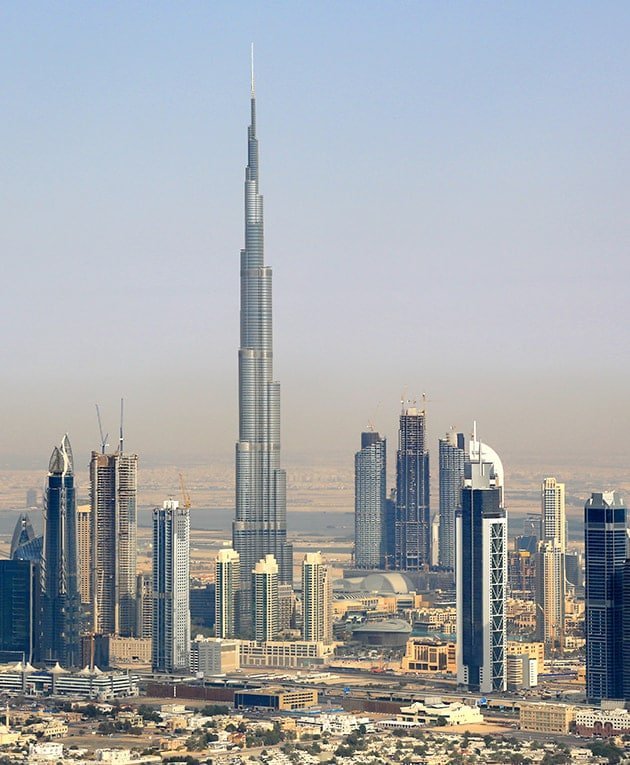-
Popular search terms
A Comprehensive Guide to Studying in:
United Arab Emirates

Doing an MBA in the United Arab Emirates offers an enticing mix of the old and the new, which makes it a popular destination for international students from across the globe. UAE’s biggest city, Dubai, is the epitome of a 21st-century city, with vast manmade structures and a huge expat population. But, dig a little deeper beyond the gleaming skyscrapers and you’ll find an ancient history that stretches back thousands of years. Although the country’s wealth is traditionally associated with oil, less than 5% of its revenue actually comes from oil, with the economy long since having diversified into financial services, trade, and tourism.
The UAE government has invested significant amounts of money into its higher education sector, making its universities some of the most cutting-edge in the world. This investment has also attracted several foreign universities from the UK and the US, with the likes of Alliance Manchester Business School, London Business School, and the Massachusetts Institute of Technology (MIT) all setting up campuses in Dubai. They complement the country’s own universities which have been steadily climbing the rankings in recent years, students no doubt attracted by the ultra-modern campuses, world-class international faculties, and the alluring prospect of paying no income tax post-graduation.

Frequently Asked Questions
FAQ
Did You Know? Fun Facts About United Arab Emirates
- 1 In a population of 9.89 million, more than 80% of United Arab Emirates residents are expats, originating from more than 200 countries around the world.
- 2 The top booming industries in Dubai are construction, tourism and travel, hospitality, e-commerce, real estate, and consulting.
- 3 In 2017, the United Arab Emirates appointed the world's first Minister of State for Artificial Intelligence.
- 4 At 828 meters tall, the Burj Khalifa in Dubai is the tallest building in the world.
- 5 You'll find the world's most impressive police cars in the United Arab Emirates – the Dubai Police's fleet includes supercars like Ferrari, Bugatti, Bentley, and Lamborghini.
Which Visas & permits do i need in United Arab Emirates
All international students need a student visa to do an MBA in the United Arab Emirates. In order to obtain a student visa, you must supply an official admissions letter from your university, a visa sponsor (either the university or a parent or relative), approval of the relevant General Directorate of Residency and Foreigners Affairs (GDRFA), and pass a medical fitness test. A student visa in the UAE is relevant for one year and costs AED100 (US$27) for issuance and renewal. International students in the UAE can take up part-time jobs and internships.
Banking in United Arab Emirates
Banking in the United Arab Emirates is simple and convenient. Several banks in the country offer student accounts with different features and requirements. Most bank accounts will request copies of your passport, your visa, your Emirates ID card, and your university student ID card (or a letter of enrolment), in order to open a bank account.
The best banks in the UAE for international students include the Emirates NBD, the National Bank of Abu Dhabi, Mashreq Bank, and Abu Dhabi Commercial Bank (ADCB). Maintenance fees and requirements vary per bank.
What do I need to know about healthcare in United Arab Emirates
Healthcare in the United Arab Emirates is exceptional, but it can be expensive. With a mix of private and public insurers, foreign nationals will use the private system. Health insurance is mandatory in the UAE and will allow you to receive medical in private hospitals and consult with private specialists. In most cases, your university can help you secure private health insurance. Some international health insurance providers in the UAE include Allianz, Cigna Global, Globality Health, and William Russell. Health insurance packages typically start at around AED599 (US$163).
Housing options for students in United Arab Emirates
Some universities in the United Arab Emirates offer on-campus housing and/or off-campus accommodation. However, the UAE has diverse housing options, from luxurious accommodation to more modest spaces. Renting a room costs around AED1,800 (US$490), while studios and apartments start at AED4,600 (US$1,250). Keep in mind that your rental costs – whether provided by the university or not – will largely depend on location and proximity to the university.
What are the public transport options in United Arab Emirates
Public transport in the United Arab Emirates is widely available and easy to use. It includes public buses, taxis, metros, trams, and car rental services. Keep in mind how public transport is used by groups like women, children, people with disabilities, and elderly people. In Abu Dhabi, for example, front seats on public buses are reserved for women. In Dubai, some cabins on the metro and trams are reserved for women. In Abu Dhabi and Dubai, there are pink taxis driven by women to carry women, children, and families.
On the metro, fares start at AED3 (US$0.81) and go up to AED17 (US$4.62), whereas bus fares range from AED2-8 (US$0.54-2.17). Student discounts are available as long as you provide proof of ID and student status.
How much does a Big Mac cost in United Arab Emirates
The Big Mac Index was invented by The Economist in 1986 as an informal way of measuring the purchasing power parity (PPP) between two currencies. The price of a Big Mac in the United Arab Emirates is AED17 (equivalent to US$4.62, EUR€4.31, and JP¥588). For US$50, you can buy 10 Big Macs.
The United Arab Emirates has a relatively high cost of living, but it is becoming more affordable. The country also maintains a high standard of living. International students should budget at least AED3,000 (US$816) per month, excluding rent – and even more to study in major cities like Dubai and Abu Dhabi.